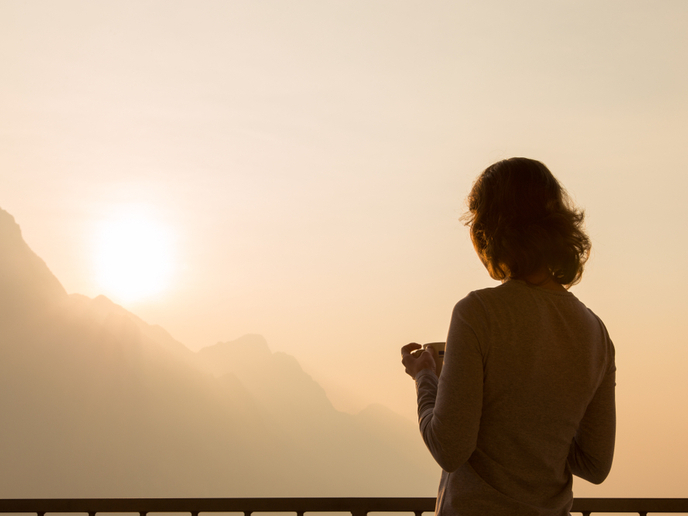Why are morning people happier?
Feeling the blues? It’s time to reset your alarm clock. According to a study published in the journal ‘JAMA Psychiatry’(opens in new window), adjusting your sleep schedule could be good for your mental health. The research concluded that waking up just an hour earlier than usual could lower depression risk by 23 %. Findings also showed that with each hour earlier that we wake up, the benefits grow.
From night owl to early bird
Researchers at the University of Colorado Boulder (CU Boulder) and the Broad Institute of MIT and Harvard analysed genetic data from nearly 840 000 adults of European ancestry. Data also included 85 000 who wore wearable sleep trackers for 7 days and 250 000 who filled out sleep preference questionnaires. About 33 % went to bed early and got up early, 9 % went to bed late and got up late, while the rest were somewhere in the middle. The average sleep midpoint (halfway between bedtime and wake time) was 3 a.m. This means they went to bed at 11 p.m. and got up at 6 a.m. If you normally go to bed at 1 a.m. but now you go an hour earlier and sleep the same duration, you cut your risk by 23 %. If you go to bed at 11 p.m. then you reduce the risk by about 40 %. There’s no evidence to suggest whether early risers could benefit from getting up even earlier. “We have known for some time that there is a relationship between sleep timing and mood,” study author Celine Vetter, an assistant professor of integrative physiology at CU Boulder, told the United Kingdom’s ‘Daily Mail’(opens in new window). “But a question we often hear from clinicians is, ‘how much earlier do we need to shift people to see a benefit?’ We found that even one-hour earlier sleep timing is associated with significantly lower risk of depression.”
Let there be light
People who get up earlier also get more exposure to light, and this could be key to well-being. Asst. Prof. Vetter has some advice for those wanting to change their patterns by sleeping and waking up earlier: “Keep your days bright and your nights dark. Have your morning coffee on the porch. Walk or ride your bike to work if you can, and dim those electronics in the evening.” Exercising earlier in the day also helps, and eating late should be avoided. Is there an ideal time to go to bed or wake up? “It is unlikely that there is one specific sleep window that would be best for everyone, it is more likely a range,” Asst. Prof. Vetter explained to ‘CNBC’(opens in new window). Anywhere between seven and nine hours a day is optimal for adults.



